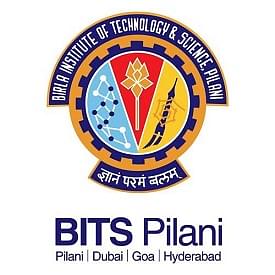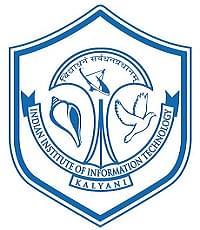Informatics PhD Introduction, Admission, Eligibility, Duration
Introduction about Informatics PhD
In
the rapidly evolving landscape of technology and information, the pursuit of
knowledge in Informatics stands at the forefront of innovation and discovery. The Best University in India. As the world becomes increasingly interconnected through digital networks and
data-driven systems, the need for experts capable of understanding, analyzing,
and harnessing this wealth of information becomes ever more pressing.
How can I apply for admission to the Informatics Ph. D.?
Applying for admission to a PhD program in Informatics typically involves several steps. Here's a general guide on how to apply:- Research Programs: Start by researching
different universities that offer PhD programs in Informatics. Look for
programs that align with your research interests, faculty expertise, and
career goals. You can use online resources, university websites, and
academic databases to find relevant programs.
- Review Admission Requirements: Once you've identified
potential programs, carefully review their admission requirements. These
may include academic qualifications (such as a bachelor's or master's
degree), standardized test scores (like the GRE), letters of
recommendation, statement of purpose, CV or resume, and writing samples.
- Prepare Application Materials:
- Statement of Purpose: Write a compelling
statement outlining your research interests, academic background, career
goals, and why you're interested in pursuing a PhD in Informatics at that
particular institution.
- Letters of Recommendation: Reach out to
professors, employers, or mentors who can provide strong letters of
recommendation that speak to your academic abilities, research potential,
and suitability for a PhD program.
- Academic Transcripts: Gather official
transcripts from all colleges and universities you've attended. Some
institutions may require transcripts to be sent directly from the issuing
institution.
- Standardized Test Scores: If required,
prepare and take any necessary standardized tests (e.g., GRE) and ensure
your scores are sent to the institutions you're applying to.
- CV or Resume: Prepare a CV or resume
highlighting your academic achievements, research experience,
publications, presentations, relevant work experience, and any other
relevant qualifications.
- Writing Samples: Some programs may require
writing samples, such as research papers, essays, or publications, to
assess your writing and research abilities.
- Submit Applications: Complete and submit your
applications by the specified deadlines. Make sure to double-check all
application materials for accuracy and completeness before submission.
- Pay Application Fees: Some institutions require
an application fee, so be prepared to pay these fees for each application
you submit.
- Follow-Up: After submitting your
applications, monitor your email for any communications from the
universities regarding your application status. You may also want to
follow up with your recommenders to ensure they've submitted their letters
on time.
- Interview (if required): Some programs may require
an interview as part of the admissions process. Prepare for interviews by
researching the program, reviewing your application materials, and
practicing responses to potential interview questions.
- Wait for Decision: Once you've completed the
application process, wait for admission decisions from the universities.
This can take several weeks to months, depending on the institution and
program.
- Acceptance and Enrolment: If you receive acceptance
offers from multiple institutions, carefully consider your options before
making a decision. Once you've chosen a program, follow the enrolment
instructions provided by the university to secure your spot in the Ph.D.
program.
- Statement of Purpose: Write a compelling
statement outlining your research interests, academic background, career
goals, and why you're interested in pursuing a PhD in Informatics at that
particular institution.
- Letters of Recommendation: Reach out to
professors, employers, or mentors who can provide strong letters of
recommendation that speak to your academic abilities, research potential,
and suitability for a PhD program.
- Academic Transcripts: Gather official
transcripts from all colleges and universities you've attended. Some
institutions may require transcripts to be sent directly from the issuing
institution.
- Standardized Test Scores: If required,
prepare and take any necessary standardized tests (e.g., GRE) and ensure
your scores are sent to the institutions you're applying to.
- CV or Resume: Prepare a CV or resume
highlighting your academic achievements, research experience,
publications, presentations, relevant work experience, and any other
relevant qualifications.
- Writing Samples: Some programs may require
writing samples, such as research papers, essays, or publications, to
assess your writing and research abilities.
- Submit Applications: Complete and submit your
applications by the specified deadlines. Make sure to double-check all
application materials for accuracy and completeness before submission.
- Pay Application Fees: Some institutions require
an application fee, so be prepared to pay these fees for each application
you submit.
- Follow-Up: After submitting your
applications, monitor your email for any communications from the
universities regarding your application status. You may also want to
follow up with your recommenders to ensure they've submitted their letters
on time.
- Interview (if required): Some programs may require
an interview as part of the admissions process. Prepare for interviews by
researching the program, reviewing your application materials, and
practicing responses to potential interview questions.
- Wait for Decision: Once you've completed the
application process, wait for admission decisions from the universities.
This can take several weeks to months, depending on the institution and
program.
- Acceptance and Enrolment: If you receive acceptance
offers from multiple institutions, carefully consider your options before
making a decision. Once you've chosen a program, follow the enrolment
instructions provided by the university to secure your spot in the Ph.D.
program.
What is the eligibility for the Informatics PhD?
Eligibility criteria for a Ph.D. program in Informatics at an affordable University in India can vary depending on the institution offering the program. However, some common eligibility requirements may include:1. Educational Background: Typically, applicants are required to hold a bachelor's or master's degree in a related field such as computer science, information technology, information systems, or a related discipline. Some programs may require a specific minimum GPA (Grade Point Average) in undergraduate or graduate studies.
How long does it take to complete the Informatics PhD?
The duration of a Ph.D. program in Informatics program at The Top University of India can vary depending on several factors, including the specific requirements of the program, the individual student's progress, and whether they are pursuing the degree on a full-time or part-time basis.Typically, a Ph.D. program in Informatics can take anywhere from 3 to 7 years to complete. Full-time students often complete their programs in around 4 to 5 years, although this can vary depending on the complexity of the research project and other commitments.
Part-time students may take longer to complete their degrees, as they are typically balancing their studies with work or other obligations. Additionally, some Ph.D. programs may have specific timelines or milestones that students are expected to meet, such as passing qualifying exams, completing coursework, and defending a dissertation proposal.
Research Programs: Start by researching
different universities that offer PhD programs in Informatics. Look for
programs that align with your research interests, faculty expertise, and
career goals. You can use online resources, university websites, and
academic databases to find relevant programs.
Review Admission Requirements: Once you've identified
potential programs, carefully review their admission requirements. These
may include academic qualifications (such as a bachelor's or master's
degree), standardized test scores (like the GRE), letters of
recommendation, statement of purpose, CV or resume, and writing samples.
Prepare Application Materials:
Statement of Purpose: Write a compelling statement outlining your research interests, academic background, career goals, and why you're interested in pursuing a Ph.D. in Informatics at that particular institution.
Letters of Recommendation: Reach out to professors, employers, or mentors who can provide strong letters of recommendation that speak to your academic abilities, research potential, and suitability for a PhD program.
Academic Transcripts: Gather official transcripts from all colleges and universities you've attended. Some institutions may require transcripts to be sent directly from the issuing institution.
Standardized Test Scores: If required, prepare and take any necessary standardized tests (e.g., GRE) and ensure your scores are sent to the institutions you're applying to.
CV or Resume: Prepare a CV or resume highlighting your academic achievements, research experience, publications, presentations, relevant work experience, and any other relevant qualifications.
Writing Samples: Some programs may require writing samples, such as research papers, essays, or publications, to assess your writing and research abilities.
Submit Applications: Complete and submit your
applications by the specified deadlines. Make sure to double-check all
application materials for accuracy and completeness before submission.
Pay Application Fees: Some institutions require
an application fee, so be prepared to pay these fees for each application
you submit.
Follow-Up: After submitting your
applications, monitor your email for any communications from the
universities regarding your application status. You may also want to
follow up with your recommenders to ensure they've submitted their letters
on time.
Interview (if required): Some programs may require
an interview as part of the admissions process. Prepare for interviews by
researching the program, reviewing your application materials, and
practicing responses to potential interview questions.
Wait for Decision: Once you've completed the
application process, wait for admission decisions from the universities.
This can take several weeks to months, depending on the institution and
program.
Acceptance and Enrolment: If you receive acceptance
offers from multiple institutions, carefully consider your options before
making a decision. Once you've chosen a program, follow the enrolment
instructions provided by the university to secure your spot in the Ph.D.
program.












